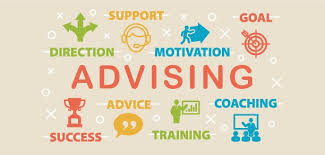Academic counseling plays a pivotal role in guiding students Academic counseling through their educational journeys, helping them navigate challenges, set realistic goals, and achieve academic success. It serves as a bridge between students’ aspirations and the practical steps required to reach them. In a rapidly evolving educational landscape, effective academic counseling is more essential than ever.
What is Academic Counseling?
Academic counseling is a specialized service provided by schools, colleges, and universities to support students in their educational endeavors. It involves personalized guidance from trained counselors or advisors who help students make informed decisions about their academic paths, course selections, and career goals. The focus is not just on academic performance but also on personal development and skill-building.
Key Components of Academic Counseling
- Educational Planning Counselors assist students in crafting tailored academic plans that align with their interests, strengths, and long-term goals. This involves selecting appropriate courses, understanding graduation requirements, and exploring advanced educational opportunities like honors programs or internships.
- Career Guidance Academic counseling bridges the gap between education and career by helping students identify potential career paths and the academic steps necessary to achieve them. By integrating career counseling, students gain clarity about how their studies relate to the professional world.
- Support for Challenges Students often face various hurdles, including academic difficulties, time management issues, or personal struggles. Academic counselors provide a supportive environment to address these challenges, offering strategies to improve study habits, manage stress, and stay motivated.
- Resource Navigation Academic counselors connect students with resources such as tutoring services, mental health support, financial aid, and extracurricular opportunities. These resources enrich the overall educational experience and promote student well-being.
- Skill Development Beyond academic advice, counseling often includes helping students develop critical skills like communication, problem-solving, and decision-making, which are essential for academic and career success.
Why is Academic Counseling Important?
- Personalized Guidance Every student is unique, with different goals, strengths, and challenges. Academic counseling provides tailored advice that helps students stay on track and reach their full potential.
- Improved Retention and Graduation Rates Studies show that students who engage with academic counseling are more likely to complete their degrees. Counselors help identify at-risk students early and implement intervention strategies to keep them engaged and motivated.
- Enhanced Decision-Making Academic counseling equips students with the tools and information needed to make informed decisions about their education and future. This reduces the likelihood of wasted time or resources on unaligned pursuits.
- Building Resilience By addressing challenges head-on and fostering a growth mindset, academic counseling helps students develop resilience and adaptability—skills that are invaluable in both academic and life contexts.
The Evolving Role of Academic Counseling
As education systems adapt to technological advancements and societal changes, the role of academic counseling is also evolving. Virtual counseling platforms, AI-driven academic planning tools, and data analytics are becoming integral to providing more efficient and accessible services. Additionally, the growing emphasis on mental health and inclusivity has expanded the scope of counseling to address holistic student development.
Conclusion
Academic counseling is more than just a support system; it is a cornerstone of student success. By empowering students with the knowledge, skills, and confidence to navigate their educational paths, counselors play a transformative role in shaping future generations. Institutions that prioritize academic counseling are investing not only in individual students but also in the broader goal of building an informed, capable, and resilient society.




